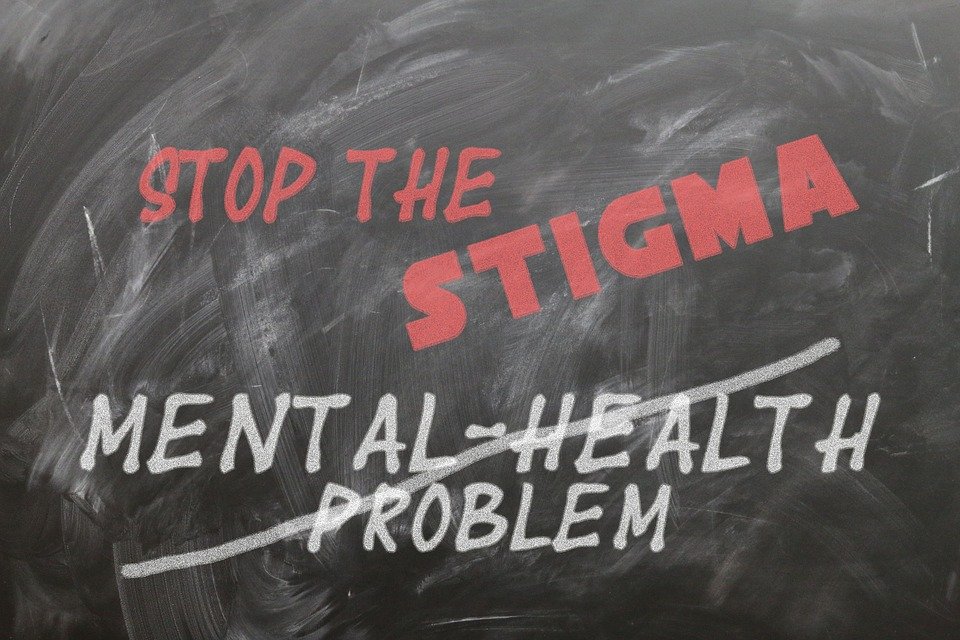
The correlation between travel and therapy is highly positive. Travel regulate positive emotions and therapy gives you a helping hand in dealing with stressors in your life. For healthy functioning and a fulfilling life, you need both – Travel and therapy.
People mistake the objective of counselling/therapy as something that is only required by those with severe mental problems like Bipolar Disorder/ Schizophrenia etc. The very act of sharing your problems with someone who is objective, unbiased and empathic can solve your issues by 50%. According to a study done by UCLA psychologists – “verbalising our feelings makes our sadness, anger and pain less intense”.
Importance of Therapy
At some point in our lives, we all felt the need of a helping hand, someone who could be there to listen to us, someone with whom we can be ourselves and share our problems without worrying about the gossip going out, someone who will make us understand both sides of the coin and suggest strategies to overcome our fears. There is no shame in seeking help, but the stigma around seeking psychological help has deterred many from coming out with their problems. I asked on my instagram,a few questions related to the topic of travel and therapy, sharing the screenshots with you all:
Let us explore what psychologists have to say about that and can we replace travel with therapy?
Can Travel Replace Therapy?
Having a background in Psychology myself as a Counselling Psychologist helped me reach out to industry experts and ask their opinions on the same. Every mental health professional will agree that ‘Therapy’ or ‘Counselling’ is needed to treat psychological issues yet some believe that travel can play a bigger role in resolving distress. The positive effect of travel on therapy cannot be denied but can we rely on travel completely to cure our problems?
Travel Acts As A Catalyst
Counsellor and trainer Preetika Kapoor from New Delhi emphasises that people experiencing significant disturbances in their cognitive and emotional functioning should seek help from a mental health specialist because travel will not teach you how to deal with the issues in an effective way. Many people suffer for years trying to figure out how to handle emotions, if psychological help is sought at the right time then this will save energy and avoid unnecessary stressors.
Preetika summarises by saying, “Travelling can act as a catalyst that helps in the treatment of mental health issues. In my practice as a counselling psychologist, I have observed a pattern that a few of my clients follow. After 6 months of therapy, they take a break for travelling which they say ‘helps them process their recovery and current state of being’. Having said this, I personally believe that travelling only helps people who have insight about their struggles and are actively working on it in therapy. Travelling can create overwhelming feelings for people who are diagnosed with specific mental disorders. This is because they are not in touch with their core self and having been in place that is highly stimulating can stir emotional reactions which are in turn unhealthy for the recovery”.
Travel Is Therapy
Shruti Ananya, a counselling psychologist working with iPROGAMS believes strongly in the power of travel as a solution to psychological problems. She says that “Travelling can be a dual sided therapeutic ride. Whether you are in a company you WANT to be in or travelling in your own recluse it brings something new to you every time you go out. I personally have interacted with people who have shared how they go out to unwind after they feel FULL or Suffocated from their daily mundane lives but little does the world know how therapeutic it can turn out.”
“In my recent experiences of counselling, people have shared how meaningful their travelling experiences have become without it being an extravagant or a luxury vacation. They have sourced their outlook through the people they have met and talked to. Heard new stories and shared their own which somehow went unheard in the city crowd from day to day.
So in my opinion with respect to what I have seen and been through travelling takes you out of your demographic as well as fixated comfort zone where you counter the charms and challenges of the unseen and unknown which brings out the difference in you as well as the way you think”.

“You seem to turn away from the picture you have seen for quite a long time, to a scenery you will be seeing from different perspectives in the future.”
On being asked if major psychological disorders or deep-seated issues can be resolved through travel. Shruti adds on, “In my opinion it is not complete alternative but a definite complementary addition to the therapeutic journey. As the insight and control which is facilitated by the therapist in to the situation or concern, at least till a point where the person starts having his/her own perspective is important for forming a new base from where the client takes over. Moreover dusting-off the baggage in therapy might make better grounds for someone before absorbing and taking up new lenses for life. So, travelling can be therapeutic as a follow-up to therapy”.
For Better Mental Health
According to Psychologist turned author Chloe Wu from Taiwan who works extensively in the mental health industry, “Travel fuels your mind, it gives strength to your soul to carry on. Through travelling, one becomes self-aware and confident but there are people who gets too caught-up in emotions while travelling and are unable to get a hold of their lives. In these cases, travelling will only give short term happiness and incapacitate the person to carry on with their daily lives in the long run. Therapy is much needed for cases with severe distress needs professional help to cope”.
Observe And Introspect
As per Nilya Dutt, a Clinical Psychologist with Fortis Hospital in Gurgaon, believes that travelling opens up avenues for therapy to be effective. “Travelling to me is an opportunity that you present to your mind, to observe and to introspect. It allows you to become a third person and watch things from a distance which gives people perspective on their problems. One may be familiar but there is always something new to look at again and travelling gives you that opportunity”.

Take time to reflect
Notion of Normal Vs Abnormal
To understand the concept of distress and psychological disorders, one needs to first know the difference between normal and abnormal mental health. Normal is anything that is followed by the majority and fulfils the social norms followed by the society. To put is in simple terms abnormal is away from normal i.e. something that is a deviation from societal norms and is maladaptive. Any behaviour that interferes with your optimal functioning and well-being.
Now if you understood the difference above, then you might ask that one behaviour which is normal in a particular culture can be abnormal in another. Yes! You are right. For example, public display of affection is looked down upon in India but in the US and European countries that is as normal as drinking water. So how can we differentiate between abnormal behaviour and psychopathology?
How to Diagnose Mental Disorders?
One can be diagnosed as having a mental disorder on the basis of 4 D’s, it is the most basic way of assessing a psychological problem. The 4 D’s are:
- DEVIANCE – Unacceptable behaviours and emotions by the society.
- DYSFUNCTION – Obtrusive thoughts and actions that incapacitate the person’` daily life functioning.
- DISTRESS – Upsetting behaviours and feelings of isolation, confusion and fear experienced by the person.
- DANGER – Any action that puts the person and people around them at risk. For e.g. violent or suicidal behaviour.
Stigma Attached With Mental Disorders And Therapy
Many of us know that ‘we’ have a problem, but shy away from seeking help. Why? The reason lies in the way psychological problems are viewed in our culture. People are hesitant to go to a psychologist/ psychiatrist due to the fear and shame attached to it, the stigma and discrimination shown by the society, lack of awareness about the symptoms, superstition attached with the condition distrust on professional help are some of the reasons why people don’t get treatment for mental illness. According to a study conducted by WHO, 30 – 80% of people do not seek psychological treatment.
When Is Treatment Needed?
How do we know when one should see a mental health professional for their problems? I am going to list down some basic symptoms that will be visible in anyone going through a critical mental health problem:
- Change in sleeping and eating patterns
- Marked changes in personality
- Lack of energy in carrying out daily like activities
- Substance Abuse
- Long term promiscuous behaviour
- Frequent suicidal thoughts
- Increase in absenteeism from work
- Reduced work performance
- Reduced attention span
- Prolonged episodes of sadness
- Constantly feeling low
Now many people will say that they experience the above-mentioned symptoms sometimes. That does not mean you have a psychological disorder. To diagnose a condition as a disorder, the symptoms must be consistent for at least a period of six months or more. A bout of sadness for a week over your break-up, or inability to sleep at night due to stress of your exams or social drinking can’t be classified as a psychological disorder.
You might also like to read:
- How Travelling Affects Your Mental health? - 8 Extremely Easy Steps To Travel Responsibly
From Where To Get Treatment?
There are many factors that one needs to look out for before seeking psychological treatment for one’s emotional and social issues. Look out for the symptoms, duration of the symptoms, distress in personal life, change in social relationships, effect on work and severity of the symptoms.
It is a good idea to see a professional mental health worker instead of asking friends to advise and support you. A layman’s understanding and judgment will be based on their experiences, they will not be able to guide you in an unbiased manner. Instead of resolving problems, bad advise from a friend will worsen your condition further.
One can go see a counsellor if the issue is a minor one, for e.g. problems with adjustment, difficulty in coping with a break-up, distress related to change of home/work profile, bullying at work, marital complications etc.
If the issue is severe then seeking help from a Psychologist/Psychiatrist is advisable. For example, severe behavioural difficulties like dealing with anxiety, phobias, long term feelings of sadness, unable to deal with loss of a loved one, suicidal thoughts and trouble with finding an aim in life [Hopelessness].
What If Therapy Didn’t Work For Me But Travel Did?
Sometimes, it takes years to resolve a deep-seated unconscious conflict. People go to therapy with an expectation of a readymade solution. I am sorry to disappoint you but I will tell you honestly that therapy is time consuming and expensive, and during the course of it you will feel many times that its not working for you. The truth is that, resolving psychological issues take time because its treating the cause of the problem from its origin. When people look for easy and short term solution, then the chances of relapse is higher.
I spoke with a gentlemen, who tried therapy but stopped going for it after a few sessions. ‘A’ [doesn’t want to be named] says that he started going to a Psychiatrist after he broke-up with his girlfriend. Along with the break-up, there were other personal issues in his life that escalated his stress levels. Seeing the Psychiatrist helped him heal but travel also played a major role in his improved mental health. According to him, the improvement was not satisfactory, medicine and therapy both helped but he still felt something amiss till the time he started travelling on his own. As a poet, he feels therapy and travel both has helped him reach at his peak creative self. He has stopped going to therapy and has replaced it with travel, whenever he feels low now, he prefers to go out instead of falling back on therapy.

Be honest while introspecting
Therapy Can’t Be Replaced By Travel
I was facing troubles with myself during my engineering days. I tried running away but it failed. Eventually, a professor introduced me to a college counsellor, says well-known blogger Anshul Akhoury who was told by his counsellor that he has anxiety issues. He initially went to the counsellor for a month but wasn’t able to form rapport with him. He elaborates, “The first counsellor was extremely unprofessional. He told everything that I told to him to my teachers who then informed my parents. I restarted my sessions in 2014 when I was in Rishikesh. It was not a traditional counselling but with someone who was conducting meditation sessions. She called her job as a life coach and not a counsellor. We would meet once a week and I would share whatever had happened till now. This went on for 5 months after which I left Rishikesh”.
On being asked if travelling helped him in dealing with the issues, he says “No, I firmly believe that travelling is a way to ignore issues that are surrounding us”. He concludes by saying “Travelling is not therapy, therapy is therapy. Travelling doesn’t resolve issues, you just forget them for a while because we are away from our natural environment where deadlines, bills and traffic jams rule daily routine”.
My Two Cents On The Topic – Travel and Therapy
As a counsellor myself, I totally suggest therapy for any emotional and behavioural issues. Travel as explained in my last post, is preventive and not a solution for your problems.
Let me explain to you a very famous model of psychopathology called Diathesis Stress Model. According to this model, one may have the vulnerability towards a mental disorder which is biologically inherited but the symptoms will not present itself till the time one is exposed to pathogenic stressors in life. For e.g. I inherited depressive genes from my parents, now that makes me ‘at-risk’ to develop depression but if I never get exposed to stress and upsetting situations in life, I will never show signs of depression. On the other hand, the same vulnerability will make me weak as compared to others, so if I am put in a stressful situation, I will react more extremely because of my diathesis.
Short Term Vs Long Term Solutions
When we travel, we are happy as we are experiencing new things, meeting new people, enjoying the moment but when things don’t work out as we expect them to be, how does that affect us? Are we able to cope up with the changing circumstances? Are you emotionally stable to deal with disappointments and heartbreaks? Or do you spirial all the way to the abyss of negative thinking and self-harm? If your answer to these questions are in affirmative then, you need to get help.
Don’t make travel as an excuse and run away from your problems. Let it empower you and enhance your well-being.
If you don’t have a clue what to do and think you need to speak to someone then feel free to email me at suman@nomadicshoes.com. I may not be able to solve your problems but I will definitely guide you to the right mental health professional.


















Traveling is the best therapy for rejuvenating the mind very much. Lots of physiotherapists would suggest traveling as it can heal mental disorder especially trauma and depression very much. You have nicely described and have taken notes from different doctors and this thing really helps a lot for those who are facing these types of problems. Thanks for the lovely blog.
This is such an interesting post – and I love the idea of using both in harmony. Personally, I believe that both are necessary for myself. Travel is therapeutic for me, but also having someone to talk to (therapist, coach, counsellor, etc.) is also helpful for peace of mind and mental health. I see exploring new cultures and places as an exciting adventure and it gets me out of my routine.
Hmm I do agree that travelling lets us forget issues that are around us and can’t replace therapy. However, it can definitely still be a great supplement to it – like a catalyst as mentioned above. Very interesting and informative post as these are not things I usually think about when travelling.
Can travel replace therapy? Well, it all depends on the scale of the problem. Sometimes travel alone is not enough and it is important to consult a specialist. But I think that changing the environment can be very beneficial in many cases.
Interesting about travel being a dual sided therapeutic ride – it might not be a solution to all problems but it sure can help bring peace and calm. For me travelling is always a welcome break from the daily schedule.
I love that doctors are prescribing nature more as a form of therapy…do you think that travel would be in the same boat as that? We love to go on hikes to get a natural form of therapy!
What an interesting post. Unfortunately, I think many people experience a depressive episode at least once in a lifetime. In that case, travel can be a great trigger to connect you to what you love (discover new places, enjoy activities on site etc). But I also think that deep mental issues (like childhood trauma) cannot be healed like this but only through therapy.
Your post had me thinking on how I view traveling. I personally think of traveling as a way to explore new cultures and countries and to change up the daily grind. I lean more on how travel improves my personal well-being which aligns closer to Chloe Wu’s perspective. It was interesting to read the subject matter experts and your feedback on whether traveling can be a type of therapy.
Good post, have had people travelling with me tell me they have a mental health issue that seems to either go away or lie low when they are away… Got me thinking- wont it resurface once they are back home/base? Shouldn’t they be doing something to help them deal with it on a long term basis..?
I do feel at peace when am travelling, but that is cos i don’t get along with family and cant wait to move away….when am home, am in my own space doing my own thing, only way to deal with life.. 🙂
I loved the way you beautifully described the means of travel as a part of healing therapy n not just the only way out . It’s important that people understand that why do they undertake travel n for what purpose .. Also the way to address or retrospect our deeper issues .. travel helps it definitely helps .. telling fr my own personal journey .. you scripted it Soo well .. kudos !